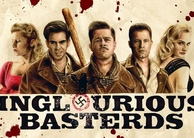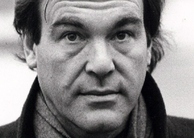The Significance Of The Screenplay
By
2010, Vol. 2 No. 02 | pg. 1/1
KEYWORDS:
Film is a highly collaborative medium. Most movie viewers probably do not think of the collaboration process each time they sit at the theater, or at their computer, but the required teamwork is significant, as any moviegoer who has actually sits through the end credits can attest. In this multi-faceted form of communication, it is hard to indentify precisely what the most important component, or who the most important team member, is. However, there is a strong case to support the notion that the most vital piece of a film is the screenplay, making the screenwriter a film’s most valuable—and often underappreciated—player. It is impossible to envision a film without a script, as the script is the base for what appears onscreen. It contains, as Assistant Professor of Film Debbie Danielpour explained in a November 10 lecture to the Boston University (BU) College of Communication (COM), what is both seen and heard. This includes a film’s structure, its dialogue, and perhaps most importantly (as movies were silent until 1926) a description of the scene’s most significant action.1 Moreover, it is almost impossible to envision a good film with a bad screenplay. Syd Field, the “Father of Structure” and author of Screenplay (a book CNN once called “The Bible of the Film Industry”) has spoken at length on this issue.2 Field said definitively, in an interview with ABS-CBN News, “You can never make a good movie out of a bad screenplay.”3 Indeed, it is possible to have a good script with poor production value and subsequently a poor film, but challenging to see the other way around. Field continued, “A screenplay is the foundation of a movie. If it’s not there, like in any building, it’s gonna weaken and crumble.”4 This idea of the screenplay as the start, the spawn, the foundation of the final work of art seems the strongest support for the idea that it is therefore the most pertinent piece of the product.However, Professor Danielpour, who also created the Screenwriting Certificate Program at Emerson College, says she is “not sure” that “the most critical aspect of the success of a film is the screenplay.” Professor Danielpour argues that, “depending on what sort of film it is, the direction could be more critical to its success.” Though she noted in her response that, “in a narrative film, it’s essential to start with a strong script,” Professor Danielpour clearly could not commit to the claim that the screenplay was the most important key to a film’s success. Her colleague, B.U.’s Associate Professor of Film Charles Merzbacher, was more ready to accept the idea. “I wouldn’t dispute your assertion,” he said. “I often say that any director who has a good script and the right cast is well on their way to success.” Merzbacher is acknowledging the collaborative process that filmmaking requires (the director, the cast) but could not find his own genuine argument against the screenwriter’s position as the most important. Before acknowledging and responding to Professor Danielpour’s point, it would be best to briefly do the same for Professor Merzbacher’s noteworthy mention of the cast. Though more actors are far more famous than screenwriters (when one refers to a “star” one is probably speaking of a lead actor than even an award-winning screenwriter) and though a given actor’s name is slammed on the movie poster or ad campaign, this only proves a disproportionate admiration and acclamation for the cast over the most critical component of the crew. Though Philip Seymour Hoffman’s portrayal of the title character in “Capote” might have been challenging and sensational, he was, in the end, memorizing and reciting lines Dan Futterman wrote on the page. To further illustrate this point, Katherine Atwell Herbert’s Writing Scripts Hollywood Will Love addresses the issue of actor versus writer in the industry. She writes, “We know that bankable stars are important... but it’s really the script. Leonardo diCaprio, considered the hottest ticket around since ‘Titanic,’ didn’t save ‘The Man in the Iron Mask’ from a stifling box office... And even the hyper-kinetic Robin Williams couldn’t get ‘Jakob the Liar’ to sell any tickets.”5 These examples speak to the way in which the quality of the script (which should translate into good reviews) often outweighs the talent of an actor—even a celebrity like diCaprio and an Oscar-winner like Williams. This brings us to the key and common argument Professor Danielpour made before: the director might be the most important player on the team. Indeed, the screenwriter is not even usually on the set—where the very product in question is being shot, acted, and put into film. Furthermore, films are often marketed or credited as (for example) “a Steven Spielberg film” or “a film by Martin Scorsese,” putting the director in the center and accrediting almost the entire process and product to the individual who directed the movie. Paul Aaron—a director, writer, producer, traveling professor, and president of his own production company, Suntaur Entertainment—claims that this stigma arose during the French New Wave. As discussed in Associate Professor of Film Studies Roy Grundmann’s November 24 COM lecture, this was a period in the late 1950’s and 1960’s in which a group of French filmmakers (Grundmann cited Francois Truffaut as one) were seen as artists as opposed to merely directors. Grundmann described this author-function as a profiting sect of the industry wherein Hollywood could make money off the artist, specifically the 1960’s and 1970’s “movie grad generation” alum like Francis Ford Coppola or Martin Scorsese. Aaron, who says the French were “director-centric” as the author of the film “switched from writer to director,” seems to reject the myth of directors (despite being an award-winning one) being the center of the art. In fact, he rejects film being called “art” at all. “It’s a craft,” he argues. “It’s an assemblage of people dedicated to illuminating the same story—editors, directors, actors, designers. And because the story begins with the screenplay, although people argue because of the final result that it is the director’s vision onscreen, the director couldn’t have a vision if he didn’t have a script.” Aaron rightfully finds this rather unfair: “Everyone remembers Frank Capra directed ‘It Happened One Night’ but no one remembers who wrote the screenplay.” There is an unfortunate status quo in both Hollywood and society that disregards the writer, or at least marginalizes him or her, in monetary and fame-related terms. There are very few famous screenwriters that the average American can name, yet the famous movies any American can name would not have existed without that nearly anonymous writer. One potential reason for this is due to the glory, or lack thereof, of roles in the process: it is more glamorous to be an attractive and made-up actor with a trailer, or a director in charge of bossing around a cast and crew, than a man or woman drafting alone at a typewriter or laptop computer screen. With the insertion of New Media into the picture, there are even more issues surrounding the respect of the writer. This was best illustrated by the Writers Guild of America strike in 2007 and 2008. In November of 2007, WGA members began a strike over the Minimum Basic Agreement contract with the Alliance of Motion Picture and Television Producers. The issues in the contract surrounded DVD residuals, animation and reality TV writers, and New Media technology.6 This technology included Internet downloads, streaming, IPTV, and smart phone programming; 1.2% of revenues from one-time online stream viewings went to writers, but nothing from website-downloaded content.7 Casts and crews from countless television series and films picketed in support of the working writers, citing their utter necessity in the industry and the need for greater monetary respect in the modern-day market. Yet even those living in Hollywood and immersed deeply in the industry, like Paul Aaron, know how important and furthermore how underappreciated the screenwriter is. “The only time when a film is perfect,” Aaron says, “is when a film is well-written.” He went on to create an analogy between a film and a song: “the song is still written by the composer. You can rearrange it, you can raise the volume—but you’re still playing the song written by the composer.” Film is indeed a craft, combining the talents of hundreds upon hundreds of craftsmen. These craftsmen are united in the common goal of telling a story to the best of their ability. But what story? There must be a starting point of the product—and that starting point is the screenplay, the offspring of the screenwriter. This is not to suggest every screenplay births from the idea of the screenwriter—not all scripts are “spec scripts,” or those written without the invitation from a studio or company. In fact, countless ideas for movies are invented by a producer, a company, a director, or a powerful actor in the industry. However, it is the screenwriter who establishes the fundamental themes, structure, characters, dialogue, and action (what is seen and heard onscreen) for the film. The screenplay is the most significant aspect of the entire medium of film, and oddly enough, often the least appreciated. 1.) Vivian, John. The Media of Mass Communication (9th Edition). Boston, MA: Allyn & Bacon, 2009. 2.) "SydField.com - Products - Books - Screenplay." SydField.com - A Website for Screenwriters - The Art of Visual Storytelling. http://www.sydfield.com/products_screenplay.htm (accessed November 9, 2009). 3.) Mina, Rosanna, and abs-cbnNEWS.com. "Screenwriting guru: Bad screenplay = bad movie | ABS-CBN News Online Beta." ABS-CBN News Online Beta. http://www.abs-cbnnews.com/features/03/11/09/guru-gives-tips-screenplay-writing (accessed November 9, 2009). 4.) Mina, Rosanna, and abs-cbnNEWS.com. "Screenwriting guru: Bad screenplay = bad movie | ABS-CBN News Online Beta." ABS-CBN News Online Beta. http://www.abs-cbnnews.com/features/03/11/09/guru-gives-tips-screenplay-writing (accessed November 9, 2009). 5.) Herbert, Katherine Atwell. Writing Scripts Hollywood Will Love. New York: Allworth Press, 2000. 6.) "AFP: Hollywood writers go on strike over new-media pay." Google. http://afp.google.com/article/ALeqM5j9z48HzVgG3HdYSBT2GVQZwoUq0A (accessed November 9, 2009). 7.) "AFP: Hollywood writers go on strike over new-media pay." Google. http://afp.google.com/article/ALeqM5j9z48HzVgG3HdYSBT2GVQZwoUq0A (accessed November 9, 2009). Suggested Reading from Inquiries Journal
Inquiries Journal provides undergraduate and graduate students around the world a platform for the wide dissemination of academic work over a range of core disciplines. Representing the work of students from hundreds of institutions around the globe, Inquiries Journal's large database of academic articles is completely free. Learn more | Blog | Submit Latest in Film & Media |














